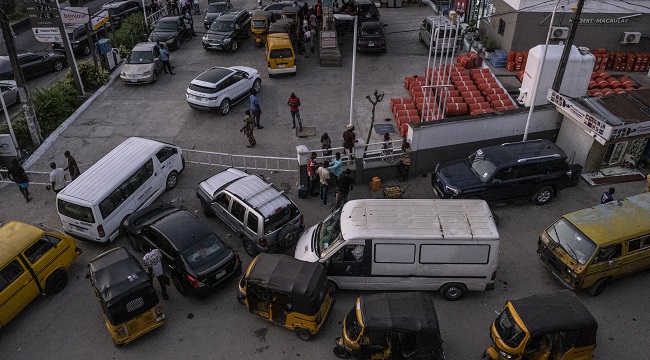Fuel prices surged across Nigeria on Wednesday, hitting Nigerians already grappling with the worst economic crisis in decades.
The Nigerian National Petroleum Company Limited (NNPCL) has yet to comment on the sudden price hike of about 15 to 20 percent at pumps nationwide.
This marks the second increase in just over a month. In early September, NNPCL acknowledged significant debts to fuel suppliers and announced a 40 percent price hike to stabilize its finances.
Nigerians are already facing skyrocketing inflation, rising food costs, and a depreciating naira. Wednesday’s price surge further squeezed household budgets as President Bola Ahmed Tinubu’s administration implements economic reforms aimed at reviving Africa’s most populous nation.
“It’s affecting everyone,” said Ohaka Amaechi, a 56-year-old police driver waiting in line at an NNPC station in Lagos. “The price isn’t fair, but we have no choice. People are struggling to survive.”
At that station, fuel prices rose from 855 to 998 naira per liter ($0.53 to $0.62), while prices exceeded 1,000 naira per liter in other areas, including Abuja and Kano. Private suppliers had already been charging higher rates.
Since taking office last year, President Tinubu has introduced reforms designed to revitalize the economy and attract foreign investment.
However, Nigerians have seen inflation soar to a 30-year high after Tinubu’s removal of the fuel subsidy and floating of the naira. Prior to these reforms, petrol prices were below 200 naira per liter.
“I don’t know if Tinubu’s really making things better,” said Emem Bob, a 24-year-old sales rep queuing for fuel in Lagos. “Salaries aren’t going up, but transport costs keep rising. Food prices will go up too—it’s tough for everyone.”
The Nigeria Labour Congress, one of the country’s major unions, expressed “dismay” at the latest price hike and called for an immediate reversal.
However, protests against economic hardship have struggled to gain traction. A nationwide demonstration in August was met with a violent crackdown, and subsequent protests in early October drew little support.
During the October protests, President Tinubu once again urged Nigerians to be patient with his reforms.



